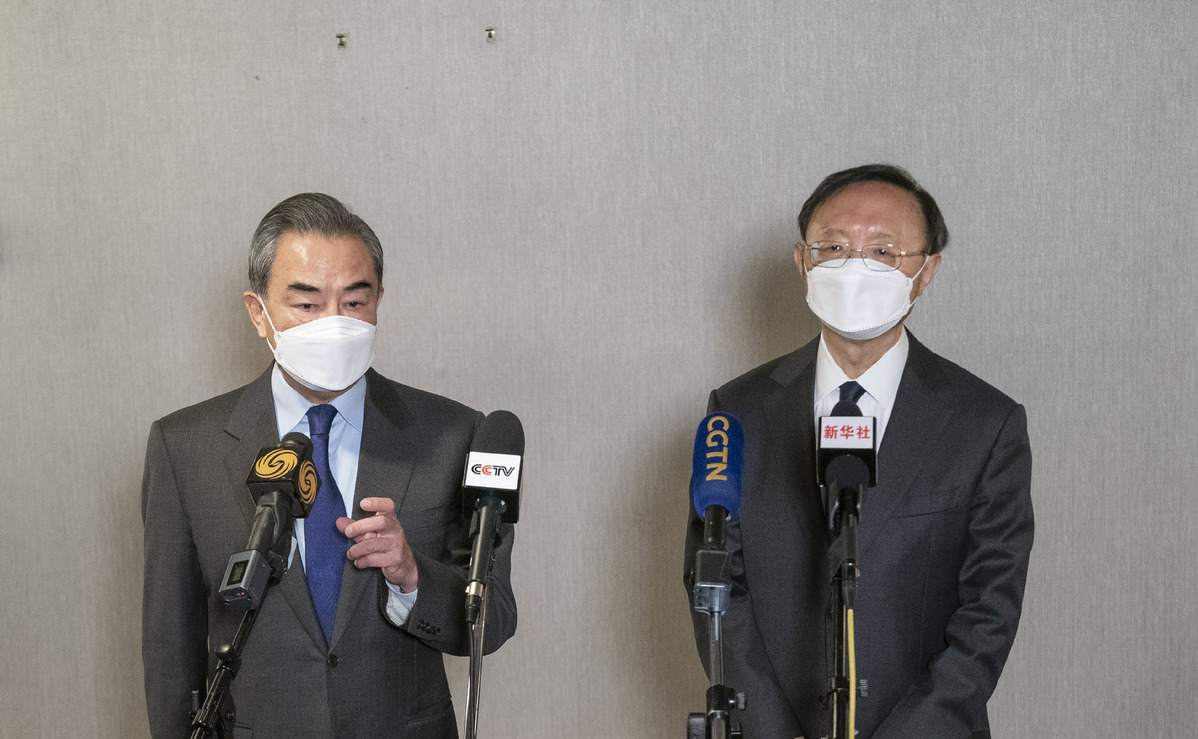US, China can cooperate on 'pressing tasks' facing the world: Diplomats


Beijing and Washington could work together on combating COVID-19 pandemic and other most pressing tasks facing the world, and develop a relationship featuring mutually beneficial cooperation rather than zero-sum competition, senior Chinese diplomats said at the first China-US high-level strategic dialogue that concluded Friday.
The world's top two economies could cooperate on COVID-19, climate change and world economic recovery, the three most demanding tasks for the international community, and ramp up communication and coordination on major global and regional issues for the benefits of the two peoples and the rest of the world, the Chinese side said in a statement after the two-day talks.
It said that such cooperation should go in two ways and be mutually beneficial, addressing the concerns of the two sides in a balanced way.
The dialogue was held between Yang Jiechi, a member of the Political Bureau of the Communist Party of China Central Committee and director of the Office of the Foreign Affairs Commission, State Councilor and Foreign Minister Wang Yi, and US State Secretary Antony Blinken and National Security Advisor Jake Sullivan.
It was a follow-up to the first phone call by the presidents of the two countries about a month ago, and also the first face-to-face meeting between the two sides since US President Joe Biden took office in January.
The two-day dialogue was "candid, constructive and helpful", though there are still some important differences between the two sides, Yang told reporters as the event wrapped up Friday noon.
He said China will firmly safeguard its national sovereignty, security and development interests, and China's development and growth is unstoppable.
The two sides should handle China-US relations in the spirit of non-conflict, non-confrontation, mutual respect and win-win cooperation, so as to move forward the bilateral relationship on a sound and stable track.
During the dialogue, the Chinese side also said the essence of China-US relationship is mutually beneficial cooperation instead of zero-sum contest, and the two countries will not necessarily end up with posing a threat to each other.
Blinken said US relationship with China will be "competitive where it should be, collaborative where it can be, adversarial where it must be", while Sullivan said that the US didn't want "conflict" but welcomes "stiff competition".
In its statement, the Chinese side said the difference and disagreement between the two countries should not be the ground for confrontation, as confrontation or conflict would lead to outcome that is beyond what either of the two could bear.
"The two countries need to build trust rather than second-guess each other; understand rather than blame each other, work together rather than undermine each other, so as to make sure they could both focus on their own domestic agenda, and attain their respective development goals," the statement read.
Blinken said after the meetings concluded that the US side was able to have a "very candid" conversation over the many hours in the two days on an expansive agenda. "On Iran, on North Korea, on Afghanistan, on climate, our interests intersect".



































